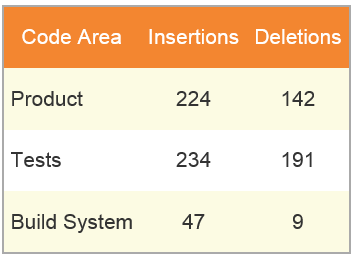Android NDK Revision 10d available
 For all the people that develop for Android, a new version( revision 10d) of the Android Native Development Kit has been released.
For all the people that develop for Android, a new version( revision 10d) of the Android Native Development Kit has been released.
Android NDK Revision 10d available
From the release log:
- Made GCC 4.8 the default for all 32-bit ABIs. Deprecated GCC 4.6, and will remove it next release. To restore previous behavior, either add
NDK_TOOLCHAIN_VERSION=4.6to ndk-build, or add--toolchain=arm-linux-androideabi-4.6when executingmake-standalone-toolchain.shon the command line. GCC 4.9 remains the default for 64-bit ABIs.- Stopped all x86[_64] toolchains from adding
-mstackrealignby default. The NDK toolchain assumes a 16-byte stack alignment. The tools and options used by default enforce this rule. A user writing assembly code must make sure to preserve stack alignment, and ensure that other compilers also comply with this rule. (GCC bug 38496)- Added Address Sanitizer functionality to Clang 3.5 support to the ARM and x86 ABIs. For more information on this change, see the Address Sanitizer project.
- Introduced the requirement, starting from API level 21, to use
-fPIE -piewhen building. In API levels 16 and higher, ndk-build usesPIEwhen building. This change has a number of implications, which are discussed in Developer Preview Issue 888. These implications do not apply to shared libraries.
And much more ...

 A short article about two error-detection features in GCC:
A short article about two error-detection features in GCC:
 Overload 124 is now available. It contains the following C++-related articles, and more:
Overload 124 is now available. It contains the following C++-related articles, and more: Have you used the Boost.Optional library? There is one thing you might need to keep an eye on as explained by
Have you used the Boost.Optional library? There is one thing you might need to keep an eye on as explained by  Fresh on the F5 dev blog:
Fresh on the F5 dev blog: